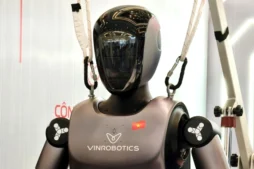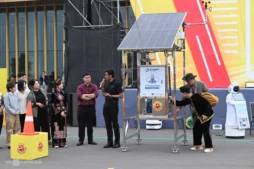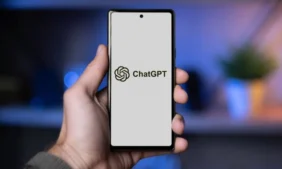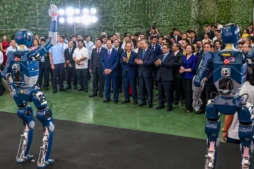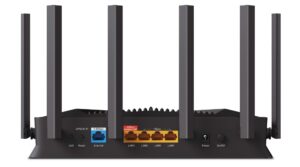Kioxia Launches 30TB SSD with a PCIe 5.0 x4 Interface
Kioxia on Monday introduced one of the industry’s first families of solid-state drives for hyperscalers featuring a PCIe 5.0 x4 interface and capacities of up to 30.72TB. The CD8P line-up of SSDs is designed for mixed use and read intensive workloads and feature all the reliability features that one comes to expect from datacenter-grade SSDs designed to work for 24/7.
Kioxia’s single-port CD8P solid-state drives come in E3.S and U.2 form-factors and offer a wide range of capacities starting at 1.6 TB and ending at 30.72 TB. As for performance, the manufacturer rates the drives at up to 12,000 MB/s sequential read speed, up to 5,500 MB/s sequential write speed, up to 2,000,000 random read 4K IOPS, and up to 400,000 random write 4K IOPS.
The new drives are a bit slower than enterprise-grade CM7 SSDs launched a year ago. Those drives are designed for enterprise workloads and have different performance (up to 14,000 MB/s) and feature set requirements (e.g., dual-port, FIPS SED).

The new CD8P SSDs use Kioxia’s proprietary SSD platform consisting of its own NVM 2.0-compliant controller, firmware, and 112-layer BICS 5 3D TLC NAND memory that supports the company’s 7th Generation flash die failure protection to ensure reliable data storage, power loss protection, and end-to-end data protection. In addition to regular CD8P models, Kioxia will also offer SKUs supporting Sanitize Instant Erase (SIE) and Self-Encrypting Drive (SED) capabilities. Meanwhile, CD8P will not be available with FIPS SED capability.
It should ne noted that Kioxia will offer its CD8P SSDs in two types of configurations: the CD8P-V for mixed-use workloads (up to three drive writes per day) will come with 1.60 TB, 3.20 TB, 6.40 TB, and 12.8 TB capacities, whereas the CD8P-R for read-intensive applications (up to one drive writes per day) will be offered in 1.92 TB, 3.84 TB, 7.68 TB, 15.36 TB, and 30.72 TB capacities.
While Kioxia is introducing its new CD8P SSDs at the Flash Memory Summit and plans to show them up and running at the show, it does not disclose when these drives are set to be available. Given that they are aimed mostly at hyperscalers, Kioxia will ship them once its customers validate and qualify them in their environments.
